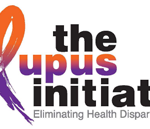Resources The Lupus Initiative has developed include:
- A DVD suitable for viewing in patient waiting rooms;
- Five short teaching videos for medical students that include well-known rheumatologists explaining clinical concerns illustrated by patients who describe related adherence and quality-of-life issues associated with lupus; and
- Case studies that reinforce student and practitioner knowledge about the medical complexities of lupus and socioeconomic and cultural factors that must be considered in order to provide more effective patient care.

Strategically Advancing Rheumatology
The Lupus Initiative supports the vision, mission, and core values identified in the ACR 2010–2012 strategic plan by highlighting the profession’s relevance—in this case, in the national movement toward health equity—and advancing the goal of sustainability.
The launch of The Lupus Initiative’s resources is timely because of recent advances in lupus treatment. Earlier this year, the U.S. Food and Drug Administration (FDA) approved belimumab. In early 2012, the ACR will publish its lupus nephritis guidelines. While discussion about the efficacy of belimumab and other treatments can be, as described by The Rheumatologist’s editor, David S. Pisetsky, MD, PhD, in “Rheuminations” (August 2011, p. 9), “intense occasions, filled with opinion, argument, and contention,” the fact is that for the first time in decades, there is discussion that reaches beyond an inner circle of lupologists. The Initiative has provided a vehicle for translating some of that discussion and data into usable information for practitioners and trainees who are not in the now larger, but still inner, circle of discussion. Simply put, The Lupus Initiative demonstrates the relevance of our profession to a broader audience.
One of the truly unique features of The Lupus Initiative is its broad circle of collaborations and partnerships. The Lupus Initiative is inclusive of physicians and health professionals and encompasses both private practice and academia. In meaningful ways, it brings together private, public, and nonprofit entities as well as lupus experts and those well versed in cultural competency, disparities research, and patient awareness. Together, they design multifaceted ways to address lupus disparities and ensure that appropriate messages and education about lupus are delivered in the most effective way. These collaborations improve the profession’s visibility among numerous stakeholders.
The Initiative will also have a positive effect on developing future generations of rheumatology health professionals. One feature of sustainability is ensuring an adequate and competent workforce. Not only does The Lupus Initiative improve competency among nonrheumatologists, but it also provides opportunity and experience for junior rheumatology professionals. A new cadre of younger rheumatology academicians and lupus professionals are dedicating time and effort to the Initiative, benefitting from the guidance and mentorship of senior rheumatologists, and getting due credit for their role in creating a curriculum and other resources for a national audience.
Agility in Response to the Changing Healthcare Environment
On some points, anticipating changes to come in the healthcare environment requires educated guesswork, but the assertion that the world is getting smaller requires no inference. The population of racial and ethnic minority patients is increasing and The Lupus Initiative positions the ACR to be a leader in health-equity thinking and practice.


